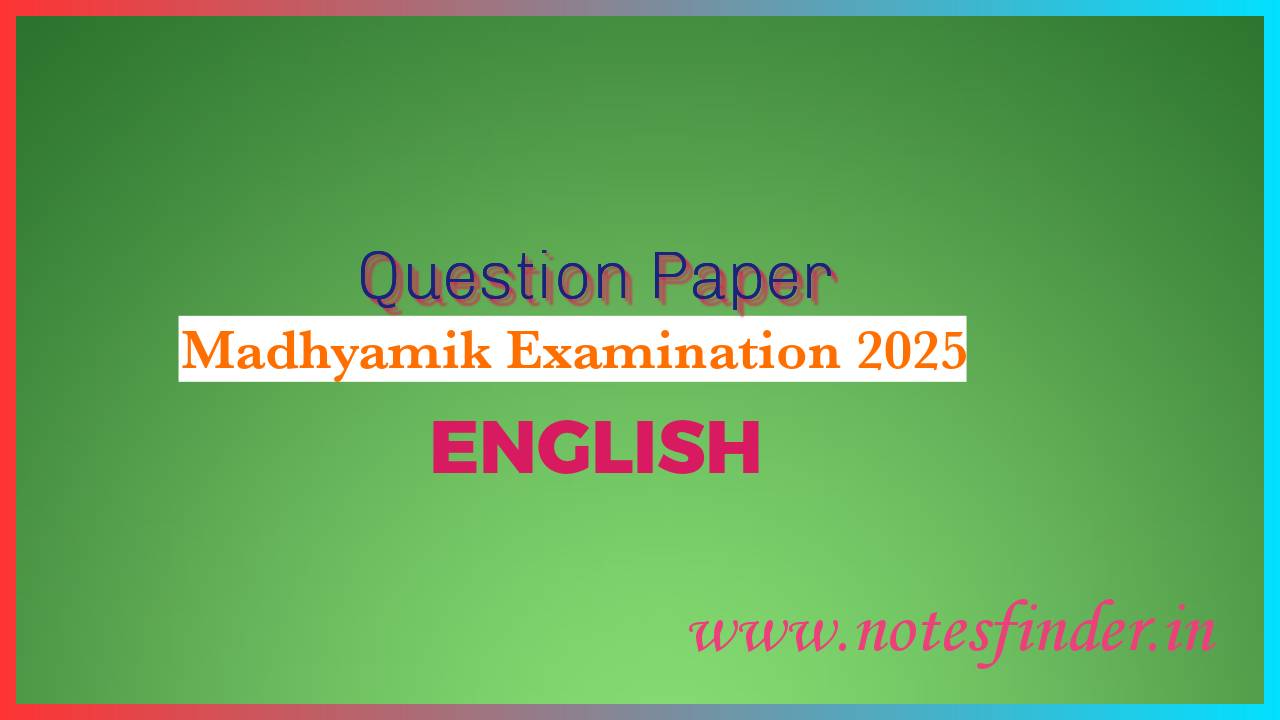KATHERINE MANSFIELD (1888-1923) is a writer of short stories. Her stories followed in the foot steps of the Russian writer chekhov. She was an impressionist in her art and sought to portray with objectivity “The significant moment of human relationship.” Her stories are marked with a note of sombreness and are characterised by a haunting sense of sadness and sympathy. Her touch was always right and accurate. Her growth was directed towards the intensity of feeling and maturity of vision. From a rather broad and crude satirist she developed into a master of irony. Her stories Prelude, To the Bay, The Fly, The Garden Party reflect the subtle Psychology. This story shows the authoress’s sensitive perception of subtle feelings and emotions especially of children whose heart and mind, she studied with rare insight.
Part-1
In afternoon the chairs came, a whole big cart full of little gold ones with their legs in the air. And then the flowers came when you stared down from the balcony at the people carrying them. The flower pots looked like funny, awfully nice hats nodding up the path.
Moon thought they were hats. She said : ‘Look. There’s a man wearing a palm on his head.’ But she never knew the difference between real things and not real ones.
There was nobody to look after Sun and Moon. Nurse was helping Annie alter mother’s dress which was much-too-long-and-tight-under the-arms and mother was running all over the house and telephoning father to be sure not to forget things. She only had time to say: “Out of my way, children !
They kept out of her ‘way—at any rate Sun did. He did so hate being sent stumping back to the nursery. It didn’t matter about Moon. If she got tangled in people’s legs they only threw her up and shook her till she squeaked. But Sun was too heavy for that. He was so heavy that the fat man who came to dinner on Sundays used to say: ‘Now, young man, let’s try to lift you.’ and then he’d put his thumbs under Sun’s arms and groan and try and give it up at last saying; ‘He’s a perfect little ton of bricks.’
Nearly all the furniture was taken out of the dining-room. The big piano was put in a corner and then there came a row of flower-pots and then there came the goldy chairs. That was for the concert. When Sun looked in a white-faced man sat at the piano—not playing, but banging at it and then looking inside. He had a bag of tools on the piano and he had stuck his hat on a stature on the wall. Sometimes he just started to play and then he jumped up again and looked inside. Sun hoped he wasn’t the concert.
But of Course the place to be in was the kitchen. There was a man helping in a cap like a blancmange, and their real cook, Minnie, was all red in the face and laughing. Not cross at all. She gave them each an almond finger and lifted them up on to the flour bin so that they could watch the wonderful things she and the man were making for supper. Cook brought in the things and he put them on dishes and trimmed them. Whole fishes, with their heads and eyes and tails still on, sprinkled with red and green and yellow bits; he made squiggles all over the jellies, he stuck a collar on a ham, and put a very thin sort of fork in it; he doted almonds and tiny round biscuits on the creams. And more and more things kept coming.
‘Ah, but you haven’t seen the ice pudding,’ said Cook. “Come along.’ Why was she being so nice, thought Sun as she gave them each a hand. And they looked into the refrigerator.
Oh! Oh! Oh! It was a little house. It was a little pink house with white snow on the roof and green windows and brown door and stuck in the door there was nut for a handle.
When Sun saw the nut he felt quite tired and had to lean against Cook.
‘Let me touch it. Just let me put my finger on the roof,’ said Moon, dancing. She always wanted to touch all the food. Sun didn’t.
“Now, my girl, look sharp with the table,’ said Cook as the housemaid came in.
‘It’s a picture, Min,’ said Nellie. “Come along and have a look.’ So they all went into the dining-room. Sun and Moon were almost lightened.
They wouldn’t go up to the table at first, they just stood at the door and made eyes at it.
It wasn’t real night yet but the blinds were down in the dining room and the lights turned on-and all the lights were red roses. Red ribbons and bunches of roses tied up the table at the corners. In the middle was a lake with rose petals floating on it. “That’s where the ice pudding is to be”-said Cook.
Two silver lions with wings had fruit on their backs, and the salt cellars were tiny birds drinking out of basins.
‘Are people going to eat the food ? Laughed Cook, laughing with Nellie. Moon laughed, too; she always did the same as other people. But Sun didn’t want to laugh. Round and round he walked with his hands behind his back. Perhaps he never would have stopped if Nurse hadn’t called suddenly
‘Now then, children. It’s high time you were washed and dressed.’ And they were marched off to the nursery.
While they were being unbuttoned mother looked in with a white thing over her shoulders; she was rubbing stuff off her face.
I’ll ring for them when I want them, Nurse, and then they can just come down and be seen and go back again,’ said she.
Sun was undressed first, nearly to his skin and dressed again in a white shirt with red and white daisies speckled on it, breeches with strings at the sides and braces that came over, white socks and red shoes.
Now you’re in your Russian costume,’ said Nurse, flattening, down her fringe.
Am I? said Sun. ‘Yes. Sit quiet in that chair and watch your little sister.’
Moon took ages. When she had her socks put on, she pretended to fall back on the bed and waved her legs at Nurse as she always did, and every time Nurse, tried to make her curls with a finger and a wet brush she turned round and asked Nurse to show her the brooch or something which stuck out, with fur on it, all white; there was even fluffy stuff on the legs of her drawers. Her shoes were white with big blobs on them.
“There you are, my lamb,’ said Nurse. “And you look like a sweet little cherub or a picture of a powder-puff.’ Nurse rushed to the door. ‘Ma’am, one moment.’
Mother came in again with half her hair down. ‘Oh,’ she cried. “What a picture !
‘Isn’t she!’ said Nurse.
And Moon held out her skirts by the tips and dragged one of her feet. Sun didn’t mind people not noticing him—much….
Part-II
After that they played clean tidy games up at the table while Nurse stood at the door and when the carriages began to come and the sound of laughter and voices and soft rustlings came from down below she whispered: ‘Now then children, stay where you are.’ Moon kept jerking the table-cloth so that it all hung down her side and Sun hadn’t any-and then she pretended she didn’t do it on purpose.
At last the bell rang. Nurse pounded at them with the hair brush, flattened his fringe, made her bow stand on end and joined their hands together.
‘Down you go!’ she whispered.
And down they went. Sun did feel silly holding Moon’s hand like that but Moon seemed to like it. She swung her arm and the bell on her coral bracelet jingled.
At the drawing-room door stood mother fanning herself with a black fan. The drawing-room was full of sweet smelling, silky, rustling ladies and men in black with funny tails on their coats—like beetles. Father was among them, talking very loud, and rattling something in his pocket.
‘What a picture!’ cried the ladies. ‘Oh, the ducks ! Oh, the lambs! Oh, the sweets! Oh, the pets!’
All the people who couldn’t get at Moon kissed Sun, and a skinny old lady with teeth that clicked said: “Such a serious little poppet,’ and; rapped him on the head with something hard.
Sun looked to see if the same concert was there, but he was gone. Instead, a fat man with a pink head leaned over the piano talking to a girl who held a violin at her ear.
There was only one man that Sun really liked. He was a little grey man, with long grey whiskers, who walked about by himself. He came up to Sun and rolled his eyes in a very nice way and said:
‘Hullo, my lad.’ Then he went away. But soon he came back again and said: ‘Fond of dogs ?’ Sun said: ‘Yes.’ But then he went away again, and though Sun looked for him everywhere he couldn’t find him. He thought perhaps he’d gone outside to fetch in a puppy.
“Goodnight, my precious babies,’ said, mother, folding them up in her bare arms. ‘Fly up to your little nest.’
Then Moon went and made a silly of herself again. She put up her arms in front of everybody and said: ‘My daddy must carry me.’
But they seemed to like it, and Daddy swooped down and picked her up as he always did.
Nurse was in such a hurry to get them to bed that she even interrupted Sun over his prayers and said:
‘Get on with them, child, do.’ And the moment after they were in bed and in the dark, except for the night-light in its little saucer.
‘Are you asleep ? aked Moon. ‘No,’ said Sun. ‘Are you ?
‘No,’ said Moon.
A long while after Sun woke up again. There was a loud, loud noise of clapping from downstairs, like when it rains. He heard Moon turn over.
‘Moon, are you awake ? ‘Yes, are you?
“Yes. Well, let’s go and look over the stairs.’
They had just got settled on the top step when the drawing-room door opened and they heard the party cross over the hall into the dining room. Then that door was shut; there was a noise of ‘pops’ and laughing, then that stopped and Sun saw them all walking round and round the lovely table with their hands behind their backs like he had done.
Round and round they walked, looking and staring. The man with the grey whiskers liked the little house best. When he saw the hut for a handle he rolled his eyes like he did before and said to Sun’ : ‘Seen the nut ?
‘Don’t nod your head like that, Moon.’ ‘I’m not nodding. It’s you.’ ‘It is not. I never nod my head.’
O oh, you do. You’re nodding it now.’ *I’m not. I’m only showing you how not to do it.’
When they woke up again they could only hear father’s voice very loud, and mother, laughing away. Father came out of the dining-room, bounded up the stairs, and nearly fell over them.
‘Hullo,’ he said ‘By Jove, Kitty, come and look at this.’
Mother came out. ‘Oh, you naughty children,’ said she from the hall.
‘Let’s have ’em down and give ’em a bone,’ said father. Sun had never seen him so jolly. : ‘No, certainly not,’ said mother.
Oh, my daddy, do! Do have us down,’ said Moon. ‘I’m hanged if I won’t,’ cried father. ‘I won’t be bullied. Kitty—way there.’ And he caught them up, one under each arm.
Sun thought mother would have been dreadfully cross. But she wasn’t. She kept on laughing at father.
‘Oh you dreadful boy!’ said she. But she didn’t mean Sun.
“Come on, kiddies. Come: and have some pickings,’ said this jolly father. But Moon stopped a minute. ‘Mother ! your dress is right off one side.’
‘Is it ?’ said mother. And father said ‘Yes’ and pretended to bite her white shoulder, but she pushed him away.
And so they went back to the beautiful dining-room. But-oh! what had happened. The ribbons and the roses were all pulled untied. The little red table napkins lay on the floor, all the shining plates were dirty and all the glasses winking. The lovely food that the man had trimmed was all thrown about, and there were bones and bits an fruit peels and shells everywhere. There was even a bottle lying down with stuff coming out of it on to the cloth and nobody stood it up again.
And the little pink house with the snow room and the green windows was broken-broken-half melted away in the centre of the table.
‘Come on, Sun,’ said father, pretending not to notice. Moon lifted the tip of her pyjama legs and shuffled up to the table and stood on a chair, squeaking away.
‘Have a bit of this ice, said father, smashing in some more of the roof.’
Mother took a little plate and held it for him; she put her other arm round his neck.
‘Daddy, Daddy,’ shrieked Moon. “The little handle’s left. The little nut. Kin I eat it? And she reached across and picked it out of the door and scrunched it up, biting hard and blinking.
‘Here, my lad,’ said father.
But Sun did not move from the door. Suddenly he put up his head and gave a loud wail.
‘I think it’s horrid-horrid-horrid!’ he sobbed.
“There, you see!’ said mother. ‘You see!’
‘Off with you,’ said father, no longer jolly. “This moment. Off you go!’
And wailing loudly, Sun stumped off to the nursery.
PANORAMA ENGLISH BOOK PART 2 CLASS 10 PROSE
Chapter 1 The Pace for Living
Chapter 2 Me and The Ecology Bit
Chapter 3 Gillu
Chapter 4 What is Wrong with Indian Film
Chapter 5 Acceptance Speech
Chapter 6 Once Upon A Time
Chapter 7 The Unity of Indian Culture
Chapter 8 Little Girl Wiser Than Man
PANORAMA ENGLISH BOOK PART 2 CLASS 10 POETRY
Chapter 1 God Made The Country
Chapter 2 Ode On Solitude
Chapter 3 Polythene Bag
Chapter 4 Thinner Than a Crescent
Chapter 5 The Empty Heart
Chapter 6 Koel (The Black Cuckoo)
Chapter 7 The Sleeping Porter
Chapter 8 Martha
PANORAMA ENGLISH READER PART 2 CLASS 10TH SOLUTIONS BIHAR BOARD
Chapter 1 January Night
Chapter 2 Allergy
Chapter 3 The Bet
Chapter 4 Quality
Chapter 5 Sun and Moon
Chapter 6 Two Horizons
Chapter 7 Love Defiled
BIHAR BOARD CLASS 10TH ENGLISH WRITING
Unseen Passage for Comprehension Literary
Unseen Passage for Comprehension Factual
Letter Writing
Essay Writing
Paragraph Writing
Short Writing
Notice Writing
BIHAR BOARD CLASS 10TH ENGLISH GRAMMAR
Tenses
Modal Auxiliaries
Active and Passive Voice
Clauses
Narration Direct and Indirect Speech
Prepositions
Subject-Verb Concord
Determiners
Idioms and Phrases
Translation



